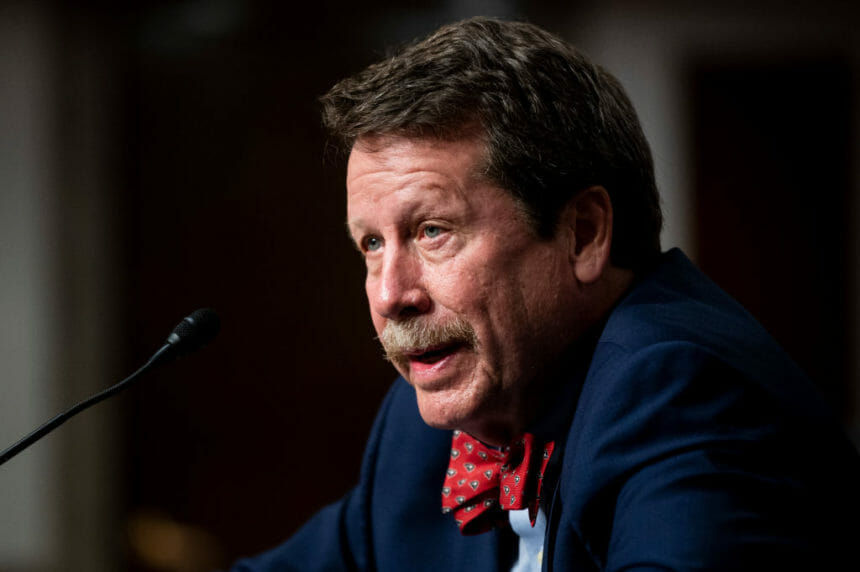After the longest interim period between commissioners in decades, the Senate has finally confirmed Dr. Robert Califf to head the Food and Drug Administration.
The narrow vote of 50-46 followed months of debate over the nomination. Several lawmakers voiced concerns over Califf’s close ties to the pharma industry, while others questioned his handling of the opioid epidemic during his previous term as FDA commissioner under President Obama.
Four Democrats voted against the nomination on Tuesday, including Senators Joe Manchin and Richard Blumenthal. But votes from Republican senators, including Richard Burr, helped overcome the opposition.
As Califf’s candidacy hung in the balance over the course of the last few weeks, some lawmakers urged him to more specifically delineate what his priorities would be if he was confirmed.
“You started to see concessions from senators like Elizabeth Warren, who made him take an ethics pledge that he wouldn’t return to industry for four years if confirmed,” Kate Rawson, senior editor at Prevision Policy, said in a Tuesday afternoon webinar hosted by the Coalition for Healthcare Communication.
“Ron Wyden wanted him to promise to clean up accelerated approval. Ben Ray Luján during the confirmation hearing extracted a promise that he would quickly take another look at opioids. And Dick Durbin extracted a promise on e-cigarettes,” Rawson continued. “It got to a point of thinking, ‘Califf’s got to have 50 different commitments to get that magic number to get the nomination through.’”
In his first weeks on the job, Califf will likely focus on addressing the staffing and management crisis that ballooned during the pandemic. Revamping and modernizing clinical research will surely be a top priority. He’s also likely to examine the agency’s backlog of drug manufacturing inspections, an issue that predated the pandemic but was exacerbated by it.
Then there are the concerns over the FDA’s regulatory policies, especially in the wake of the accelerated approval of Biogen’s controversial Alzheimer’s drug Aduhelm.
“There’s been a lot of ink spelled on the missteps by FDA in the way it granted Aduhelm accelerated approval, and a lot of fallout in FDA’s perceived coziness with industry,” Rawson said. “[That goes in tandem] with the way it communicates big decisions to the public. There’ll be more noise on [the accelerated approval pathway] moving forward.”
Califf is currently a senior advisor at Google’s Health and Verily, and sits on the board of directors at Centessa Pharmaceuticals and Cytokinetics. He has said he would resign from those positions if confirmed.







